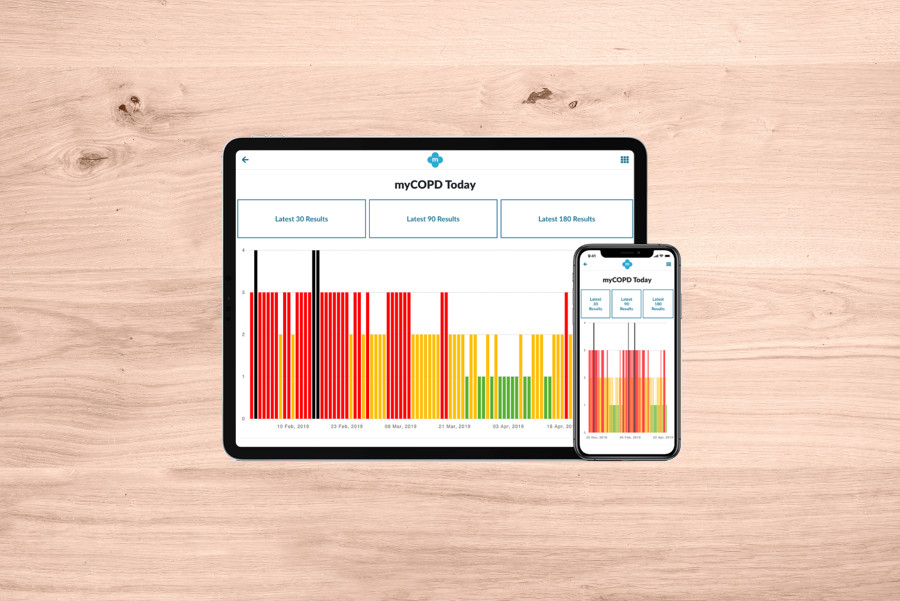
COPD pilot work awarded to scale up their outcomes in a new project
The work on the COPD pilot, led by the University of Southampton, demonstrated that machine learning can predict acute chronic obstructive pulmonary disease (COPD) exacerbation events several days in advance. Such predictions have huge potential to improve clinical models and drive behavioural change necessary to avoid acute exacerbation.
A secured grant, project mySmartCOPD (£1.5million, 36 months), from UK NHSX/NIHR for scaling up the COPD pilot outcomes will build on the fact that COPD exacerbation events can be predicted for NHS England patients (i.e., England wide) and used to trigger interventions through scaling up the current BigMedilytics outcomes in the areas of safe and reliable AI, acceptance and engagement with patients and clinicians, establishment of clinical efficacy, safety, regulatory data, and establishment of a competitive AI-enhanced digital health ecosystem.
Interview to Michael Boniface (my mhealth Ltd) on the Evening Standard Science and Tech Daily podcast for mySmartCOPD NIHR AI Award.
COPD is a common disease and is predicted to become the third leading cause of death by 2030. Because there is no cure, treatment involves long-term management of symptoms to slow the decline of patient health and improve quality of life. A key characteristic of COPD is the presence of ‘exacerbation events’ defined as an acute worsening of symptoms. Exacerbation events are detrimental to health and often lead to hospitalization. Avoiding exacerbation events is desirable because it leads to higher quality of and longer life. The BigMedilytics pilot on COPD demonstrated that machine learning can predict acute exacerbation events several days in advance. Such predictions have huge potential to improve clinical models and drive behavioural change necessary to avoid acute exacerbation.
The University of Southampton aims to predict COPD exacerbation events and use them to trigger interventions. The objectives are to develop safe and reliable AI, ensure acceptance and engagement with patients and clinicians, establish clinical efficacy, safety, regulatory data, and establish a competitive AI-enhanced digital health ecosystem.
In this new project, four work packages will address clinical, technical, and adoption. WP1 “Person-Centred Care” will create a patient journey and clinical model, and work with clinicians, patients, and the public to ensure effectiveness and safety. WP2 “Agile Digital Platform Engineering” will develop a digital platform that incorporates AI components from WP3 “Predictive Analytics and Visualisation”. Finally, WP4 “Dissemination, Certification and NHS Adoption” will engage stakeholders, obtain regulatory approvals, and secure investment.
By predicting and mitigating exacerbations, the University of Southampton aims to empower patients to engage with the management of their COPD and reduce the burden on NHS services. Exacerbation frequency/severity is expected to be reduced, slowing deterioration of lung function, and increasing quality of life. A positive return of investment (ROI) is anticipated from reduced use of acute care and better use of medical interventions.
[1] Chmiel FP, Burns DK, Pickering JB, Blythin A, Wilkinson TMA, Boniface MJ. Retrospective development and evaluation of prognostic models for exacerbation event prediction in patients with Chronic Obstructive Pulmonary Disease using data self-reported to a digital health application. In submission. Preprint: https://www.medrxiv.org/content/10.1101/2020.11.30.20237727v1.full.pdf

